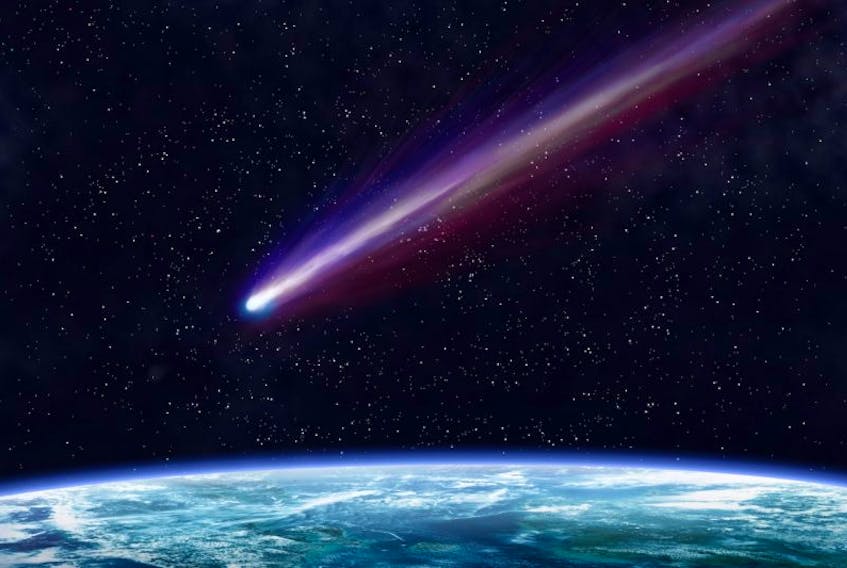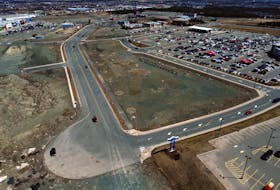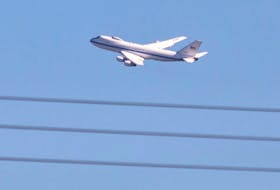By Melissa Wong
Special to the Telegram
Chatting at a scientific conference 18 months ago, Jack Matthews and Sean McMahon came to the conclusion someone needs to guard the galaxy.
So, they wrote a paper to help start the debate.
Due to recent trends by governments and companies looking to explore space, Matthews and McMahon are concerned about potential damage to extraterrestrial sites — from NASA’s landing sites on the moon to the tracks of the Mars lander.
“We need everyone to engage, not just one particular company or country,” Matthews said Monday over the phone from Oxford, U.K. “So, I think it is the responsibility of all countries and companies that are exploring space to do so responsibly and to have due consideration for all important scientific, historical and environmental sites on all celestial bodies.”
Matthews is a post-doctoral fellow at Memorial University’s department of earth sciences and is currently a research fellow at the Oxford University Museum of Natural History. McMahon is at the Centre for Astrobiology at the University of Edinburgh.
Last Thursday, McMahon published his blog post “To Mars and beyond! (But with a conscience)” announcing the coming of his and Matthews’ paper “Exogeoconservation: Protecting geological heritage on celestial bodies.”
By publishing this paper, they hope to spur a longer discussion about extending geoconservation from Earth to the rest of the solar system.
Matthews says a global agreement is needed to protect extraterrestrial environments because there is no law to protect planets and moons. Existing international law prevents any single country from claiming territory in space. That’s why Matthews and McMahon are pushing for an international agreement to safeguard extraterrestrial sites.
“As this becomes an international enterprise it’s important that the world works together,” he said. “People may say this is a kind of dream, that it couldn’t possibly happen. But the perfect example is Antarctica, where the world has already agreed that Antarctica is a place of research and conservation for the entire world, and therefore there is a global treaty the controls what can happen in Antarctica.”
Matthews says the Antarctic Treaty system does not harm human adventuring or exploration, as it is only there to protect the environment — a good model for any international agreement on extraterrestrial sites.
The Matthews/McMahon paper was recently published in the journal Acta Astronautica.
Matthews says since they have identified the problem and offered a solution, hopefully the paper will spark a debate among academic colleagues, governments, space agencies, companies and earthlings.
Non-profit organizations in America, such as For All Moonkind, are similarly trying to protect lunar landing sites from being destroyed by any company, government or people who want to go forth and venture where no human has gone before.
According to For All Moonkind’s Facebook page, it was founded in April 2017 with a mission to ensure the “lunar landing, and other sites in outer space, are recognized for their outstanding value to humanity and consequently preserved and protected for posterity by the United Nations and the international community as part of our common human heritage.”
“All people should be concerned with environmental protection, whether it be on Earth or other planets as humans seek to explore or understand them,” Matthews said.
“Part of humanity’s shared heritage is represented by a set of footprints on the lunar surface and it would be a great loss to humankind’s shared cultural heritage and it would be a great loss to lose those things.”









